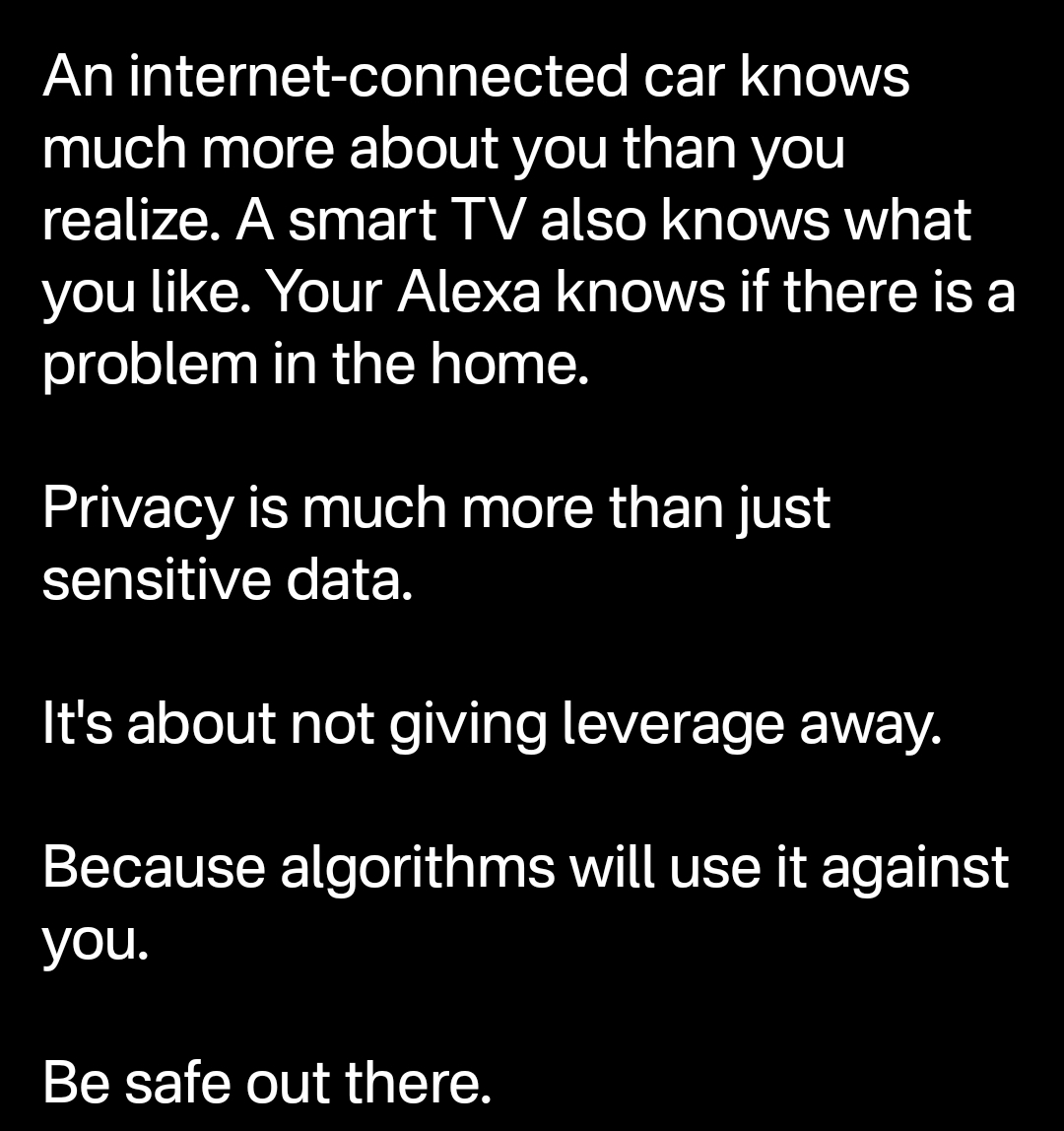
post text
Picture this:
- You type on Google “laptop won’t turn on”
- Google now knows you have a broken laptop and can estimate how desperate you are to fix it.
- Because it knows how desperate you are, it can increase shop prices proportionally.
You are going to pay the maximum they get you to pay.
That’s algorithmic pricing.
The more companies know about you, the more they can predict and sell how desperate you are to other stores out there.
An internet-connected car knows much more about you than you realize. A smart TV also knows what you like. Your Alexa knows if there is a problem in the home.
Privacy is much more than just sensitive data.
It’s about not giving leverage away.
Because algorithms will use it against you.
Be safe out there.

And the health apps know when you’re sleeping, they know your heartrate throughout the day, your o2 sats. They can take all this mortality risk data to factor in things, advertise drugs to you, advertise foods they know you’ll eat even though it’s bad, manipulate how your insurance pays out for your next treatment because it would have been preventable if you hadn’t eaten those donuts. The phone manufacturers know you run apps, how long, what you do (yes, even Apple, especially Apple, they hide behind “privacy” so you feel ok with what they do to you) what web pages you open, how long you view them.
They could biometrically paint a picture of your day, your movement, there’s an entire profile of data available on many humans. I wouldn’t be surprised if they aren’t already tying heart rate data to viewership of media and advertising.